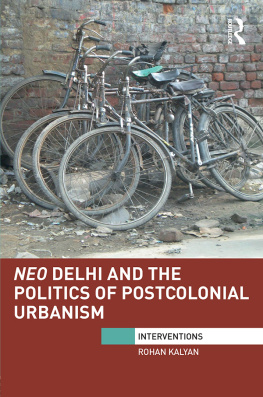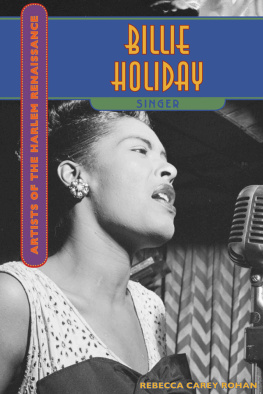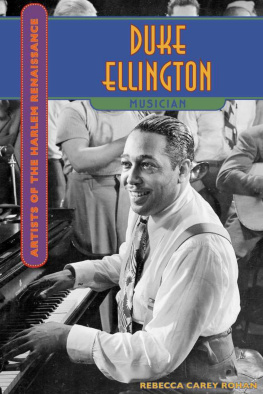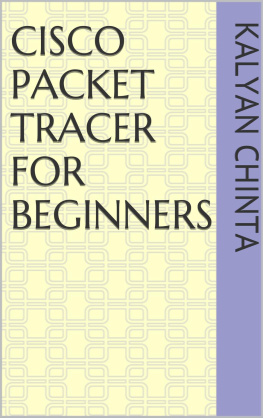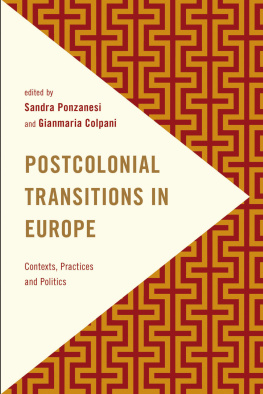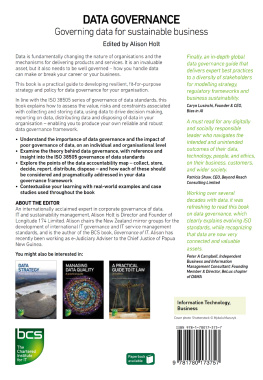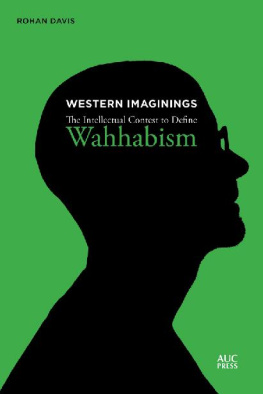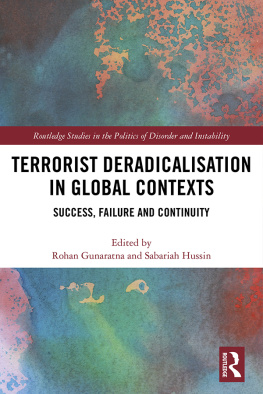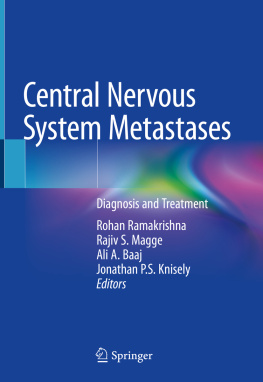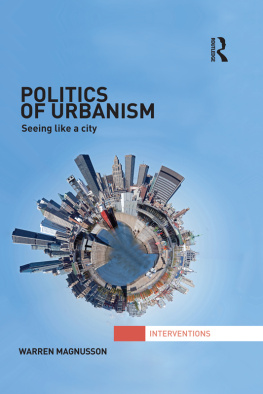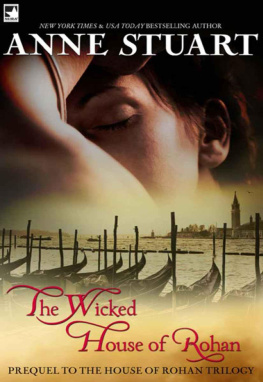First published 2017
by Routledge
2 Park Square, Milton Park, Abingdon, Oxon OX14 4RN
and by Routledge
711 Third Avenue, New York, NY 10017
Routledge is an imprint of the Taylor & Francis Group, an informa business
2017 Rohan Kalyan
The right of Rohan Kalyan to be identified as author of this work has been asserted by him in accordance with sections 77 and 78 of the Copyright, Designs and Patents Act 1988.
All rights reserved. No part of this book may be reprinted or reproduced or utilized in any form or by any electronic, mechanical, or other means, now known or hereafter invented, including photocopying and recording, or in any information storage or retrieval system, without permission in writing from the publishers.
Trademark notice: Product or corporate names may be trademarks or registered trademarks, and are used only for identification and explanation without intent to infringe.
British Library Cataloguing in Publication Data
A catalogue record for this book is available from the British Library
Library of Congress Cataloging in Publication Data
A catalog record for this book has been requested
ISBN: 978-0-415-78835-9 (hbk)
ISBN: 978-1-31522-535-7 (ebk)
Typeset in Times New Roman
by Wearset Ltd, Boldon, Tyne and Wear
It is a privilege to get to thank so many people and organizations for helping in the production of this book, in whatever small or big way. It is also a pleasure since this opportunity comes along too rarely. I would first like to thank The J. Watamull Foundation in Honolulu, Hawaii for funding my first year of field research in Gurgaon and Delhi in 20082009. Thanks to the University of Hawaii for funding a return trip in 2010. The University of the South funded trips to Delhi and Gurgaon in 2012 and 2013, and the Institute of Society, Culture and Environment at Virginia Tech funded a final trip to Delhi in 2015. Thank you to each of these institutions for supporting my research.
Thanks to my teachers. This book is in so many ways shaped by the conversations, incitements, arguments and provocations we shared in and out of the classroom or office at the University of Hawaii (as a grad student) and Vassar College (as an undergrad) or as a professor at the University of the South and Virginia Tech. My deepest admiration, affection and gratitude goes to Sankaran Krishna, Mike Shapiro, Himadeep Muppidi, S. Charusheela, Jon Goldberg-Hiller, Nevzat Soguk, Noenoe Silva, S. Shankar, Kazi Ashraf, Kathy Ferguson, Monisha Das Gupta, Monica Ghosh, Gorav Kalyan, Ashish Kapoor, Marwan Sehwail, Milan Dale, Sami Majeed, Sidney Plotkin, Katie Hite, Andy Davison, Ravi Sundaram, Mara Sydney, Manny Ness, Christian Kroll, Jeremy Sather, Manuel Chinchilla, Mila Dragojevic, Taylor Spence, Raji Soni, Ralph Calbert, Nick Copeland, Francois Debrix, Tim Luke, Scott Nelson, Mario Khreiche, Alex Stubberfield, Anthony Szczurek, Christine Labuski, Emily Satterwhite, Vinodh Venkatesh, Matt Gabrielle and more. Your mentorship and friendship, your exemplary academic work and creativity, your ideas and insight, and perhaps most of all your generosity and trust, are things I try to bring into my encounters with new colleagues and students.
In graduate school in Honolulu I had the insanely fortunate experience of being able to genuinely say that the weather and the surfing werent the best part of my seven years there. Thank you to the Aloha School in Manoa for being a dynamic, vibrant, fun, challenging and endearing community of scholars, activists, artists and friends. Some of us are no longer in the city by the sea but our overlapping geohistories in Honolulu from 2005 to 2012 will remain impressed into my mind and spirit (and reinforced through social media) forever. Thanks to Lorenzo Rinelli, Noah Viernes, Amy Donahue, Jimmy Weir, Jason Adams, Bianca Isaki, Sam Opondo, Melisa Casumbal-Salazar, Iokepa Casumbal-Salazar, Willy Kauai, Ashley Lukens, Kelii Collier, Rujunko Pugh, Carmen Nolte, John Maus, Brianne Gallagher, Chad Shamura, Konrad Ng, Melli Wilson, David Toohey, Mike Cawdery, Ed Coates, Ben Schrader, Jake Dunagan, Stuart Candy, Fabiano Mielniczuk, Keanu Sai and Ned Bertz. There are many others to be included here. I hope to continue thinking with you lot in the years ahead.
Thanks to my Delhi friends and comrades whom I met during the course of my research. I am indebted to you for your hospitality and for injecting me, an awkward South Asian-North American, into the always-simmering political and cultural life of Delhi. You brought me to political meetings, demonstrations, speeches and rallies, film screenings, to conduct surveys and interviews for progressive knowledge, to drink chai and smoke cigarettes, attend concerts and plays, and talk about everything. Tara, Praveen, Naveen, Lucky, Bono, Ish, Leo, Kailash, Ashish, Namrata, thanks for playing host and allowing me to tag along. I hope to return these to you some day. Very special thanks also goes to my family in Delhi and Haryana, especially my cousin Rubal in Gurgaon. Thanks for making me feel at home. I would also like to thank my research contacts and informants in Delhi and Gurgaon. Without your generosity of time this research would have been impossible. Many of my informants were from low-income communities and led lives filled with everyday challenges and existential struggles. I hope I have done an adequate job in documenting some of these issues and contributing in some small part to their alleviation.
Thanks to Jenny Edkins and Nick Vaughan-Williams, the series editors of Routledge Interventions. They originally invited me to submit my proposal and manuscript and I am happy to have found a home for this research there. Thanks also to Lydia de Cruz, Nicola Parkin, the anonymous reviewers and everyone else at Routledge who helped in transforming the manuscript into a book.
Thanks to Danielle for being with me through the final months of this project. Thanks especially for reading rough drafts of some of the chapters, for being a critical and always insightful thinker. You inspire me.
This book is dedicated to my family: Sulekha, Narender and Gorav Kalyan. Thanks for being my intellectual base and for sparking my curiosity in the world. Your unconditional love and support for my work inspired me to see it through to the end. I hope it does you proud.
Map 1 National capital territory of Delhi.
Source: created by author.
Map 2 Gurgaon (old and new parts).
Source: edited from Google maps.
Map 3 Chakkarpur Village, Gurgaon.
Source: edited from Google Earth.




